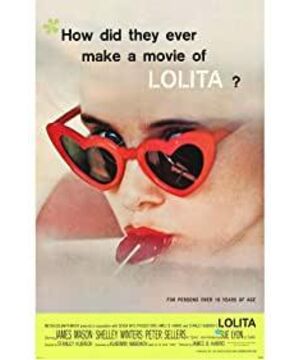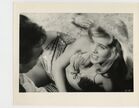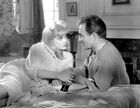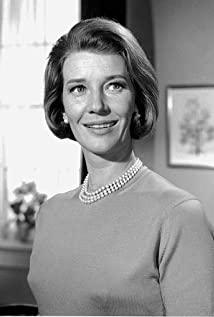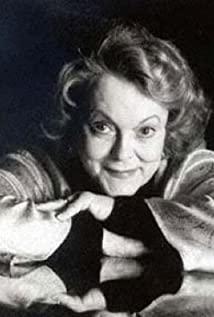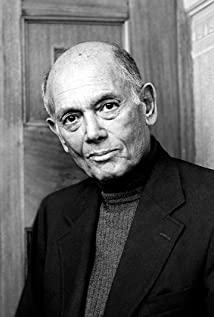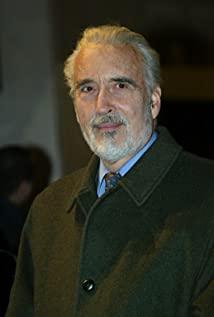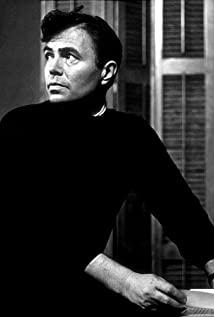Hearing people say: "God gave everyone a cup that is spacious enough to hold wisdom. Most people don't have a full cup. They seem to be deep and steady but shallow. The wise man's water overflows the cup, so he talks freely, Kubrick's cup. Floating on the water, drifting backstroke, and being at ease." It's interesting that you actually plan to continue reading this whole nonsense, don't you really think that someone can understand Kubrick?
You know, Kubrick is a Martian, or a real lunatic, whatever, he's too smart to be a normal Earthling, you'll never be able to write "On Kubrick's Movies" Gameplay” kind of bastard article to perfunctory, because you are not at the same level of players, fortunately we still have a few such outstanding minds, Nabokov is one of them, it can be said that “Lolita” ” is the endgame he presented to the world. After he spared no effort to detour the game and mock in every possible way about the concept and common sense of human beings in a certain time and space, we still have to admit that this is an invitation to an intellectual game. The password and the maze have been carefully crafted. Once furnished, the seductive rose garden awaits the intrusion of breakthroughs. Only the intelligence that can match it is the only key, and neither morality, emotion nor reason can enter it.
Just as Alexander the Great cut off the intricate ropes with one sword, there may be no entrance to a labyrinth that is difficult to a certain extent, and the only way to solve it is to say another equivalent riddle, as a spiritual echo- This is also my imagination of the relationship between Nabokov and Kubrick's "Lolita".
Back to the topic, if you compare the lines of a Kubrick movie to a long line of jolly poems, then its rhymes are sometimes "-y", which may be repeated twice, so you might as well call it a double syllable (perhaps a symbol of a An inner tearing and tense confrontation that sounds like a swamp bubbling morbidity), occasionally even repeated three times, that is, a trifold (in which there is clearly a sly contempt and a dangerous provocation, often an absolute potential foreshadowing of violence).
trifold
The rhyme in Kubrick's movie lines is sometimes "-y", but in fact, it is inseparable from the repetition of its inherent line rhythm (mostly two or three times), such as the bad one in "A Clockwork Orange". Incorrigible little jerk Alex, who often repeats the same word three times, like
"Hi, Hi, Hi, there",
"righty , righty , right",
"welly, welly, well",
This kind of loopy tone and intriguing grammar is really what impressed me the most in "A Clockwork Orange". The lingering ghost of the lingering sound lingers. However, it may be that in order to conform to the grammar rules, it is necessary to morph adjectives into adverbs to modify the final An adjective, thus becoming a reason for the large number of "-y" rhymes.
Even in Kubrick's more serious and classical "Barry Lyndon", we can find traces of this wonderful language style. Captain Feeney, who robbed halfway, was proud after learning that he had made a lot of money. Three times "well, well, well" circling vigorously.
This kind of looping rhythm gives the impression that it is close to a cold and contemptuous cunning. The users of trigrams are often accompanied by confidence and cunning arrogance, and their bragging rights are often publicized in broad daylight. Violence and self-proclaimed superior intelligence. It is a pity that there are no characters similar to Captain Feeney and Alex in "Lolita". Even when Dr. Humbert is holding a gun in his hand, he looks heavy and honest, so this style is not suitable for him. Although Quilty is slick, treacherous and neurotic, he is a softie who is not good at physical violence. He prefers to use the so-called "civilized man" method to destroy each other on the spiritual battlefield, and then sniping insults and ridicules. a bit less.
It's very interesting that Quilty showed off glibly before being forced by Humbert to read the confession, and if you use Diu to mean that sound, it would be—
Diudiudiudiu
diudiudiudiu
diudiudiudiuuuuuu
It can also be regarded as a variant of the triad.
"-y rhyme"
Having said that, let's talk about Kubrick's love for the "-y" rhyme exposed in "Lolita". It can be said that this is a unique self-expression in his other movies——
Of course, this should be attributed more to Nabokov's original, but we can notice Kubrick's almost neurotic repetition of it in the film, which shows that he really likes the word (and perhaps its rhyme) .
Alrighty.Alrighty. Repeated a total of two times
Dr. Keagy.
Tragedy, and comedy and fantasy - the "-y" rhyme here is an absolute obsessive-compulsive dependence that seems like oxygen that can't escape for a moment.
"Gee" is basically Quilty's catchphrase. It appears no less than ten times in the film. The "-e" rhyme can also be regarded as an extended variant of the "-y" rhyme, deliberately reducing "Geez" to "Gee". To some extent, the tangible impact of this obsessive-compulsive disorder can also be seen.
Mighty pretty.
In fact, a person's style and temperament can be seen from the ending rhymes often used in conversations. "-y" is like the screeching of a broken water pipe, or the extremely uncomfortable sound of a knife slicing on the blackboard. It is suitable for the more neurotic and overly sensitive genius personality. For example, in the above analysis, only Quilty meets this condition in "Lolita", so Kubrick changed most of Quilty's lines to "-y" at the end, which can be regarded as A deliberately exaggerated adaptation of Nabokov's original setting. It occurred to me later that "-y" is often an adjective at the end, which makes the impression of this rhythm seem to be inherently tied to the kind of eloquent and chattering genius that belongs to that frivolous style, the exact opposite of Mr. Hunbert.
double doubling
The most obvious double doubling in the original book and the film is the name of the protagonist, the narrator-
Humbert Humbert
Since I haven't read Nabokov's original work, I still don't understand what the meaning of this named double doubling is, and what kind of mystery is hidden? What kind of invitation is it? Is the identity of the dual exile intellectuals lost in reality and spirit? Or a dual personality between lust and morality? Or is it the subtle beginning of a grand text game?
But one thing seems to be secretly confirmed, that is, Humbert Humbert, like other double syllables in the movie and the original book, embodies an inner sense of tearing and tense confrontation, and the repeated thump sounds pathological. The swamp bubbling and bubbling creates an underlying physiological unease that is so intriguing that when you hear the second echo, you always try to look forward to the third, waiting for that repeated tearing Suspended division ends in that third sound of dust, unifying in absolute violence that controls everything.
View more about Lolita reviews


